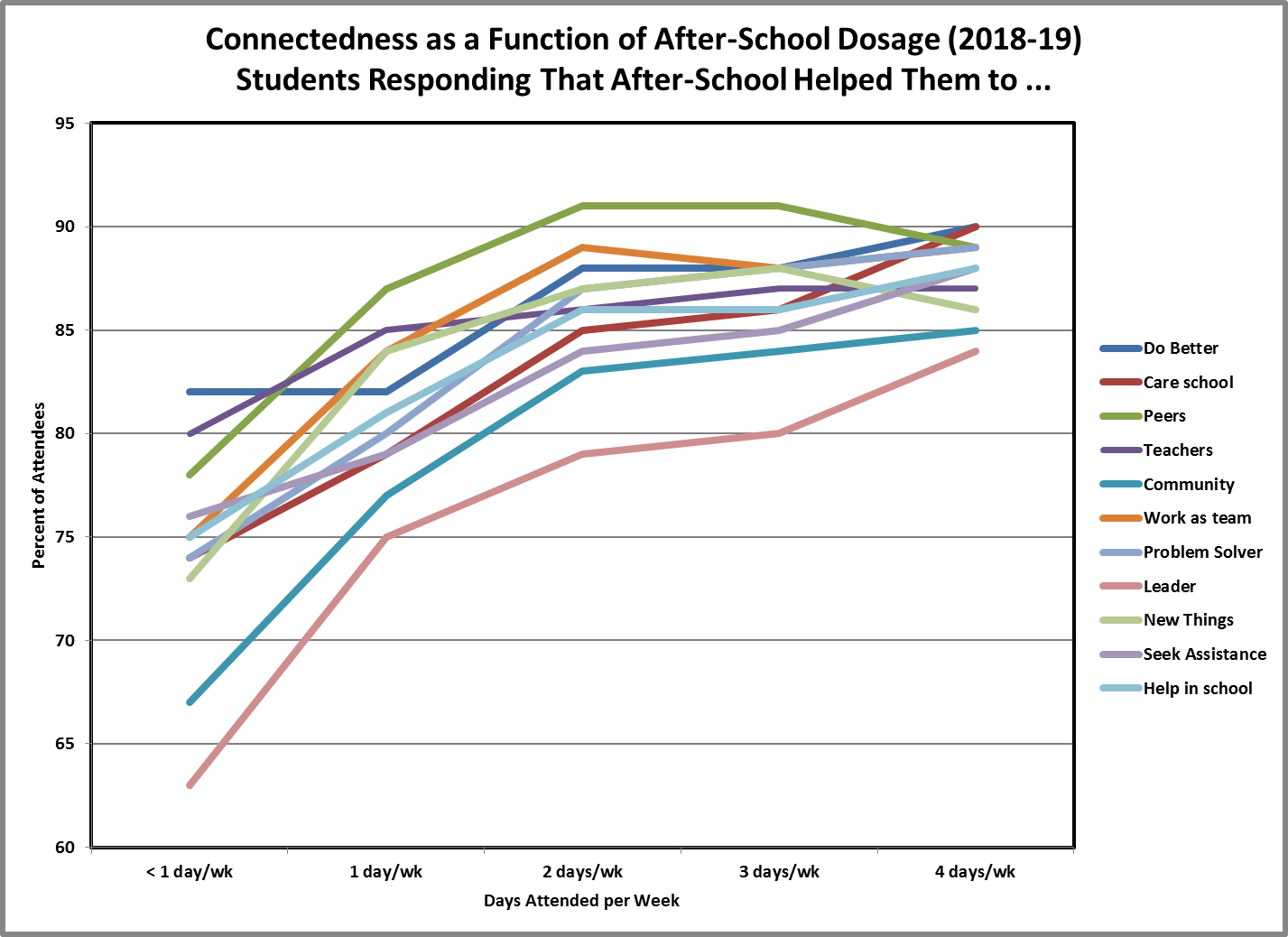Impact of Middle School Afterschool Activities
Program Outcomes
Research shows that youth benefit from participation in after-school in a variety of ways:
- Academic Support and Enrichment
- Building Positive Relationships with Peers and Adults
- Helping Develop Social Skills
- Increasing the Likelihood of Participating in Positive Social Behavior
Evidence of Success for the Middle School After-School Program (MSASP)
Outcomes are tracked and correlated with how often a student attends after-school. The following statistics were collected from the latest annual surveys of parents, teachers and students from every FCPS middle school and from correlations of daytime academics, absenteeism, and behavior with after-school dosage. (FY19)
Teachers agree, or strongly agree for MSASP:
93% - offers assistance that relates to school day
86% - feel well-informed about the MSASP
96% - offers meaningful enrichment activities
95% - students benefit academically
98% - students benefit socially and emotionally
Parents agree, or strongly agree for MSASP:
87% - satisfied with activities and programs
93% - satisfied with days and times
82% - adequate physical activity
86% - has quality activities for their child’s interest, talents, or gifts
Parents agree, or strongly agree, for their child’s experience:
95% - enjoy attending MSASP
96% - comfortable with staff
89% - seem happier/less stressed
94% - have friends in MSASP
79% - have developed better work habits
86% - have a better attitude towards school
75% - doing better academically
When asked how they felt about MSASP, students report:
90% - enjoyed attending MSASP
94% - interesting, fun things to do
86% - learn about new things
87% - get help with homework
95% - respected the rules
93% - felt safe
89% - adults happy to see them there
82% - tell friends to attend
On Connectedness Measures, students, on average, report that the MSASP helped them to:
84% - do better in school
78% - care more about their school
75% - have a stronger connection to their community
85% - get along better with their peers and adults
80% - become better at solving problems
82% - work better with others on a team
72% - become more of a leader
82% - learn to do things they couldn’t do before
80% - become better at asking adults for help
80% - learn things in the MSASP that help in school
These responses varied by how often a student attended the MSASP. The graph below shows those responses as a function of dosage in after-school (from less than one day/week to 4 days/week).

Daytime academics, absenteeism, and behavior correlated to participation in MSASP:
Students who attended less than 30 days of after-school in a school year:
Received 87% of the Fs awarded across all subjects
Received 82% of the Ds awarded across all subjects
94% of the students who were chronic absentees (10% or more daytime absences (18 or more days)) attended less than 30 days of after-school in a school year.
Students who attended less than 30 days of after-school in a school year:
Received 78% of the discipline infractions against another student
Received 79% of the behavior infractions
